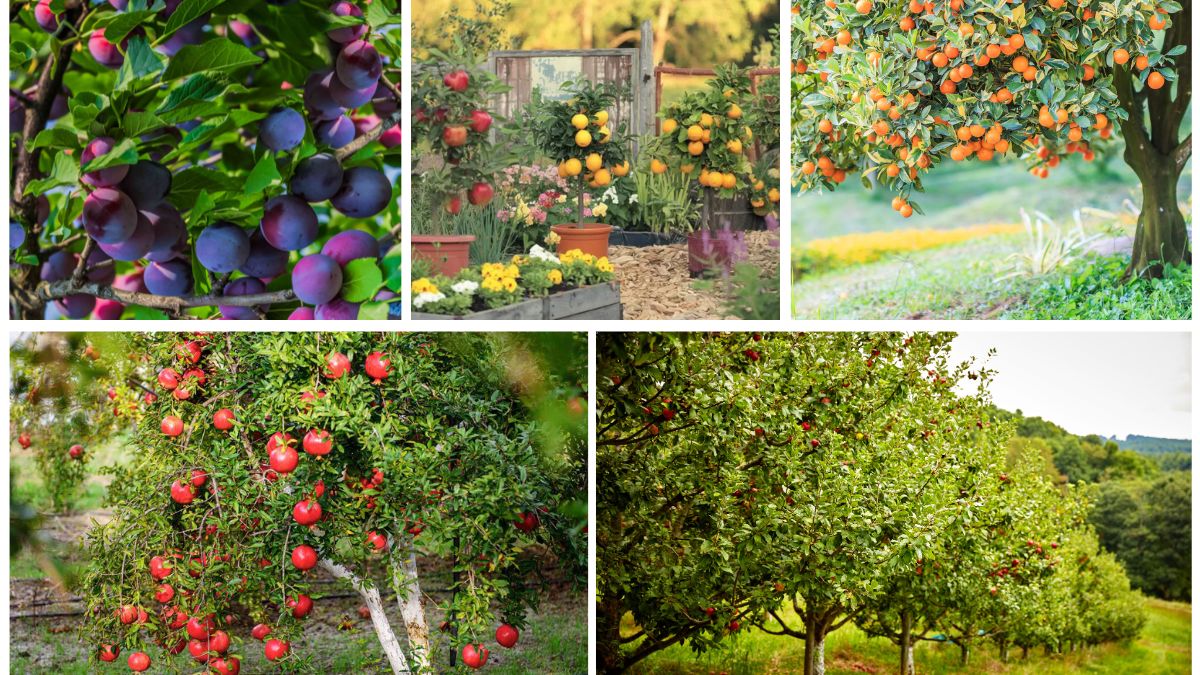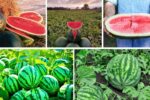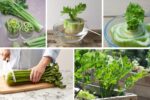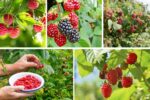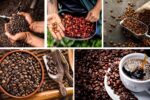If you’ve always dreamed of picking fresh, juicy fruit straight from your backyard but think you don’t have the space—think again! Even small backyards, patios, and urban gardens can become thriving mini-orchards with the right choice of compact or dwarf fruit trees. These trees are specially bred or grafted to stay manageable in size, making them perfect for limited spaces while still producing abundant harvests.
In this article, we’ll explore the 5 best fruit trees for small backyards, complete with growing tips, space-saving techniques, and advice on how to get the most from your compact orchard.
Why Choose Dwarf or Compact Fruit Trees?
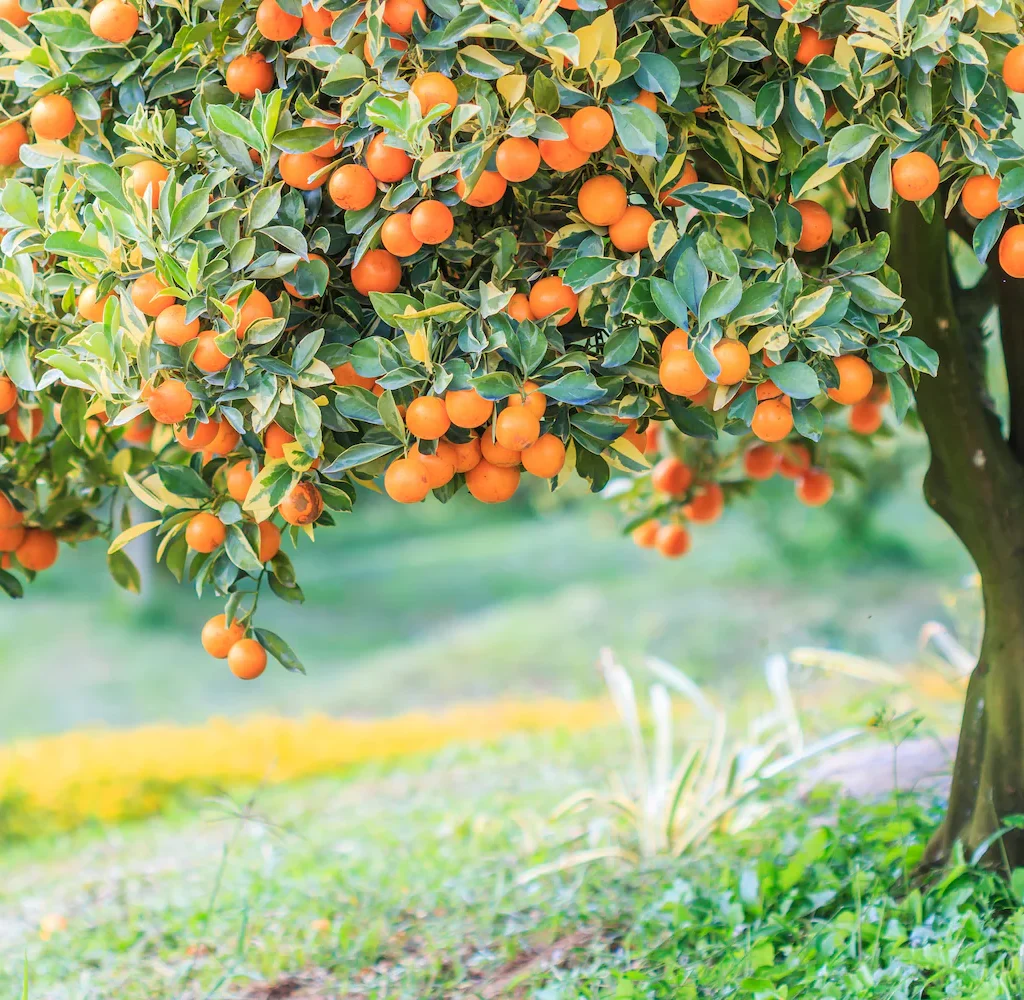
Before diving into the list, it’s important to understand why dwarf and semi-dwarf trees are ideal for small spaces.
- Manageable size: Dwarf trees typically grow 8–10 feet tall, much smaller than standard trees, making them easy to prune and harvest.
- Quick fruiting: Many dwarf varieties start producing within 2–3 years compared to 5–7 years for standard trees.
- Container-friendly: Some varieties grow happily in large pots or raised beds.
- High yield in small spaces: Even with limited room, they produce plenty of delicious fruit.
Now, let’s look at the top 5 fruit trees for small backyards.
1. Apple Trees
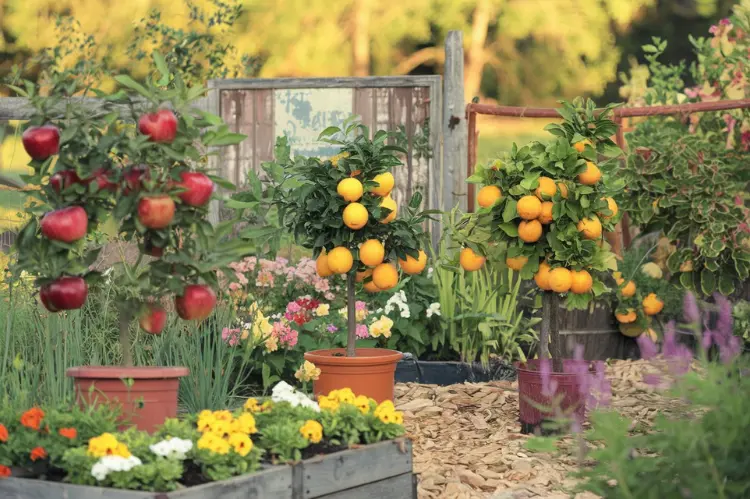
Why They’re Perfect for Small Yards
Apples are a classic choice for home gardens. With dwarf and columnar varieties available, you can grow apples even in tight spaces or containers. Columnar apples, for instance, grow in a narrow, upright shape, ideal for patios and narrow beds.
Popular Varieties for Small Spaces
- ‘Urban Apple’ series (e.g., ‘Golden Sentinel’): Columnar, space-saving, and highly productive.
- ‘Fuji’ or ‘Honeycrisp’: Available in dwarf rootstocks, producing sweet, crisp fruit.
Growing Tips
- Sunlight: Full sun (6–8 hours daily).
- Soil: Well-drained, slightly acidic soil enriched with compost.
- Pollination: Most apple trees require cross-pollination. Plant two compatible varieties nearby or choose self-pollinating types.
- Care: Prune annually to maintain shape and improve airflow.
Why You’ll Love Them: Fresh-picked apples taste far superior to store-bought ones, and you’ll have endless options for pies, cider, and snacks.
2. Peach Trees
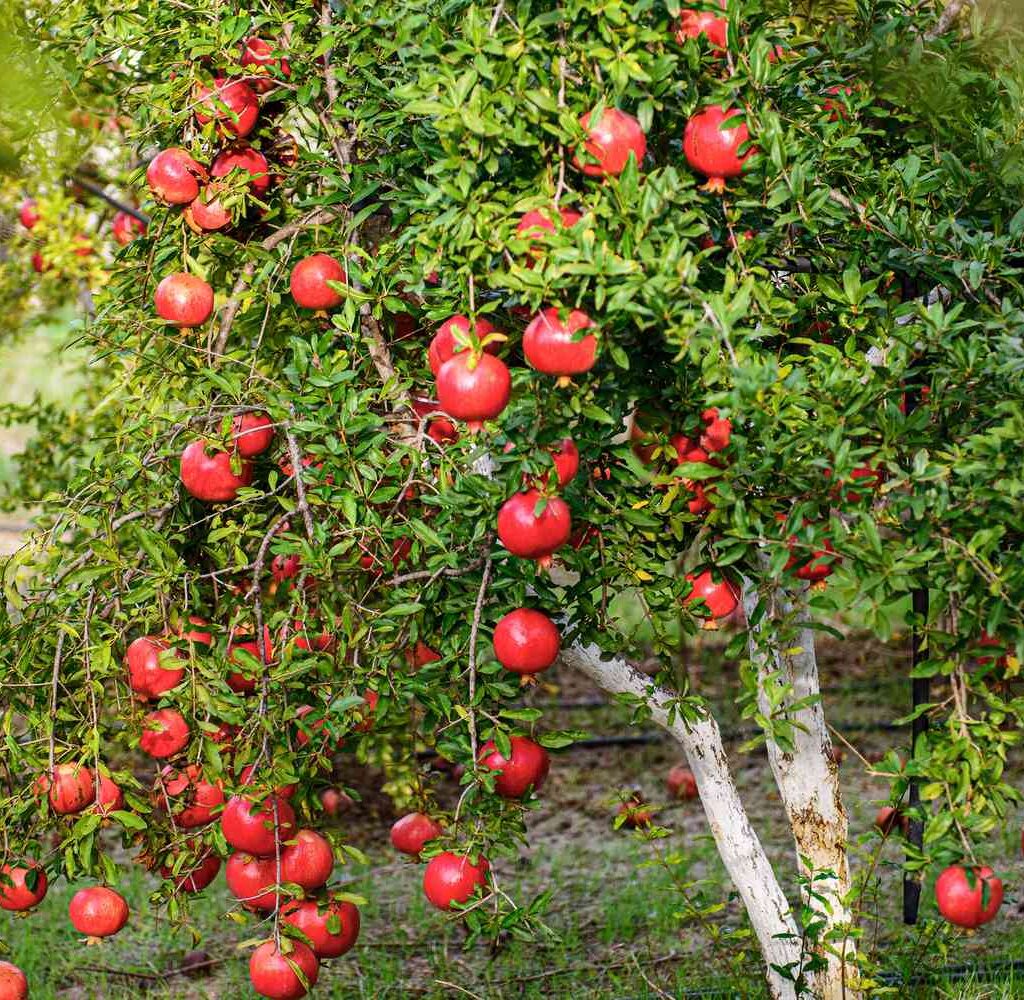
Why They’re Perfect for Small Yards
Peach trees are not only compact but also among the fastest fruit trees to bear—sometimes producing fruit as early as the second year. Their fragrant blossoms in spring also add ornamental beauty to your yard.
Popular Varieties for Small Spaces
- ‘Bonanza’ Dwarf Peach: Grows just 5–6 feet tall, perfect for pots or patios.
- ‘El Dorado’ Dwarf Peach: Known for its sweet, flavorful fruit and compact growth.
Growing Tips
- Sunlight: At least 6 hours of direct sunlight.
- Soil: Sandy, well-draining soil enriched with organic matter.
- Watering: Regular, especially during fruit development. Avoid waterlogging.
- Pruning: Annual pruning is essential to encourage new growth and keep fruit within easy reach.
Why You’ll Love Them: Nothing beats the taste of a sun-warmed, freshly picked peach, and dwarf varieties deliver that experience without overwhelming your space.
3. Fig Trees
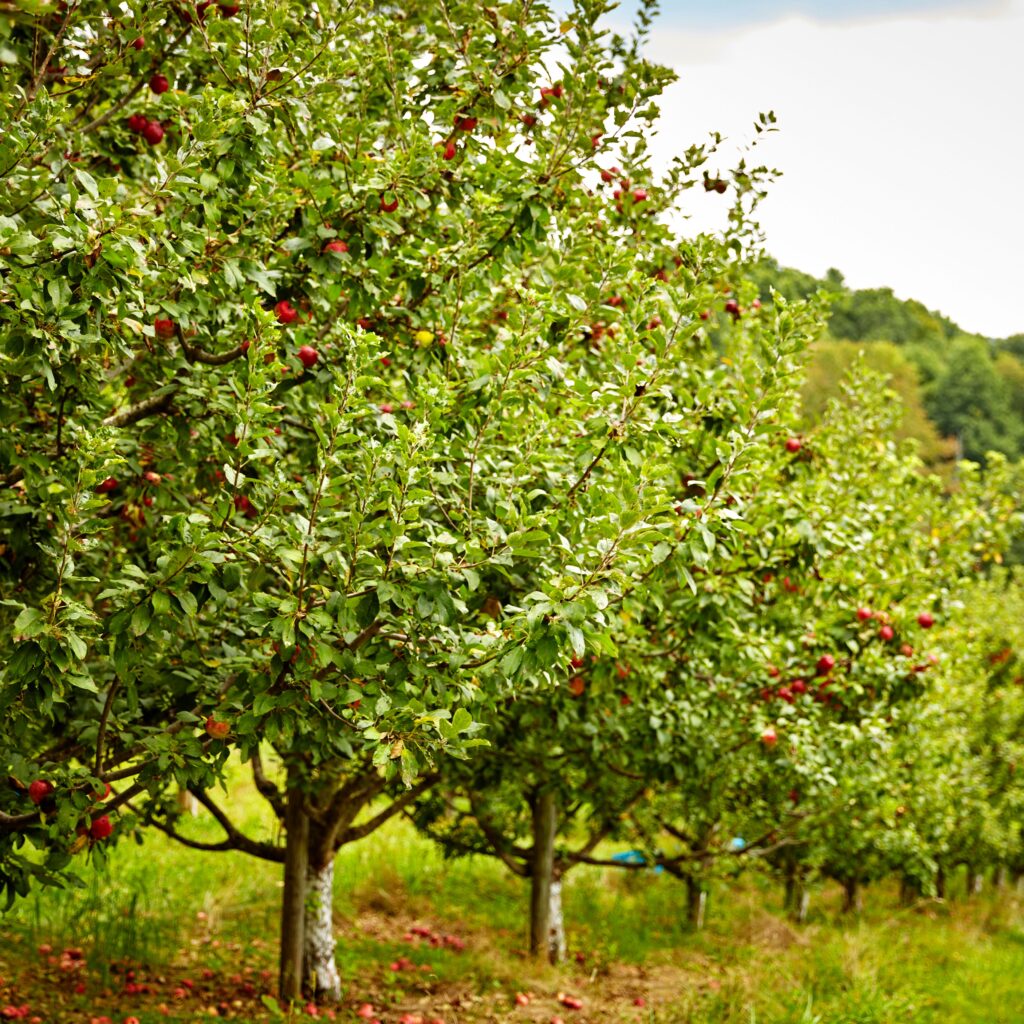
Why They’re Perfect for Small Yards
Figs are incredibly adaptable and thrive in pots, raised beds, or small plots. Their lush, tropical-looking leaves add beauty, while their sweet, chewy fruit is delicious fresh or dried.
Popular Varieties for Small Spaces
- ‘Petite Negra’: Naturally small, producing fruit even when only 2–3 feet tall.
- ‘Celeste’ or ‘Brown Turkey’: Compact, reliable varieties suited for backyard growers.
Growing Tips
- Sunlight: Full sun for maximum fruit production.
- Soil: Loamy, well-drained soil with good organic content.
- Watering: Keep consistently moist during fruiting season, but allow soil to dry slightly between waterings.
- Container Growing: Use a large pot (at least 18–20 inches wide) to control root size and keep trees manageable.
Why You’ll Love Them: Figs are low-maintenance, produce abundantly, and their fruit is both versatile and nutrient-packed.
4. Plum Trees
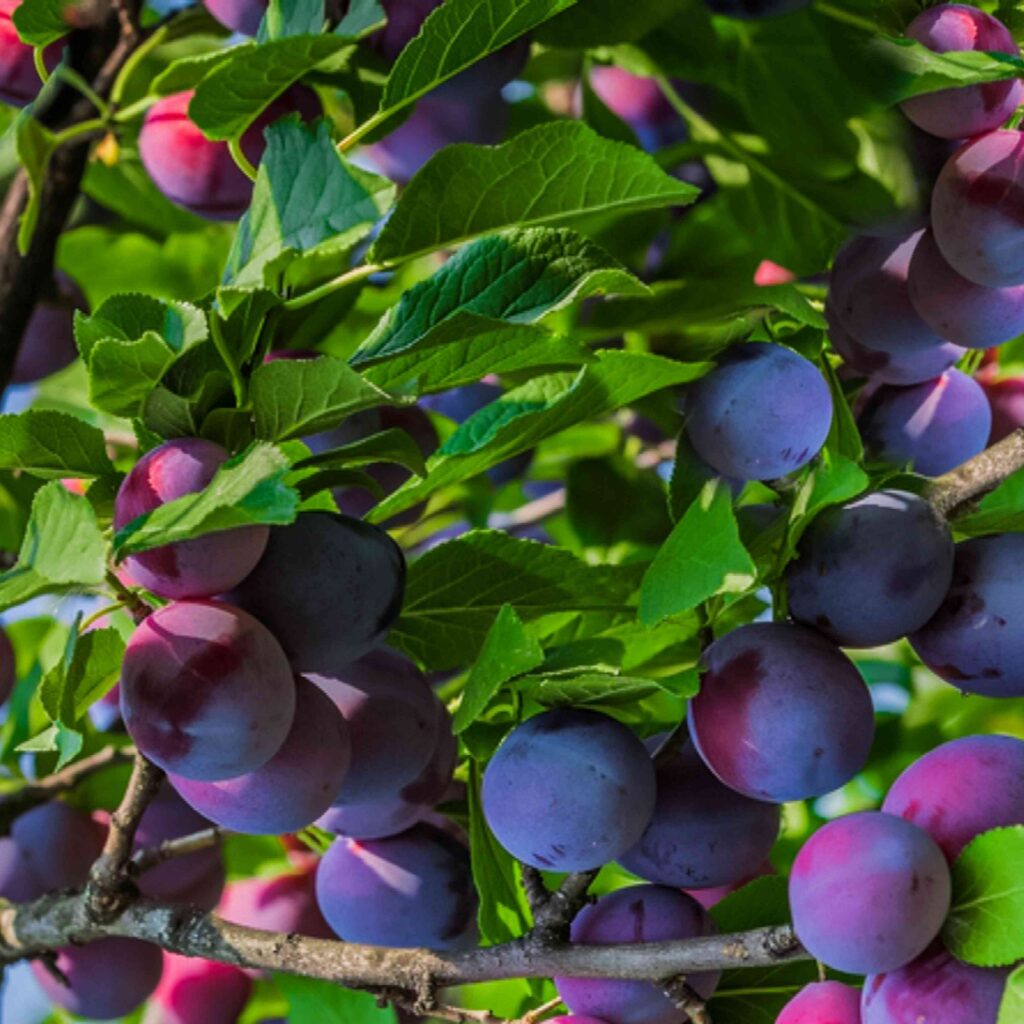
Why They’re Perfect for Small Yards
Plum trees offer vibrant spring blossoms followed by juicy, tangy fruit perfect for eating fresh, making jams, or baking. Dwarf plum varieties are excellent choices for compact gardens.
Popular Varieties for Small Spaces
- ‘Santa Rosa Dwarf Plum’: Self-pollinating, producing sweet red-purple fruit.
- ‘Methley Plum’: Compact, productive, and tolerant of various soils.
Growing Tips
- Sunlight: Needs at least 6 hours of sun daily.
- Soil: Well-drained, slightly acidic to neutral soil.
- Pollination: Some varieties are self-pollinating, but planting two types often boosts yields.
- Pruning: Helps maintain size, shape, and fruit quality.
Why You’ll Love Them: Plums are versatile and delicious, and dwarf varieties make them accessible even in the smallest yards.
5. Lemon Trees (or Other Citrus Trees)
Why They’re Perfect for Small Yards
Citrus trees, especially lemons, are highly adaptable and thrive in containers. Their glossy leaves, fragrant blossoms, and bright fruit make them a delight for both eyes and taste buds.
Popular Varieties for Small Spaces
- ‘Meyer Lemon’: Compact, prolific, and sweeter than traditional lemons.
- ‘Improved Dwarf Meyer Lemon’: Ideal for patios and indoor-outdoor growing.
Growing Tips
- Sunlight: At least 8 hours daily—place in the sunniest spot possible.
- Soil: Well-drained potting mix with added perlite or sand for aeration.
- Watering: Keep evenly moist but never soggy.
- Container Growing: Use large pots with drainage holes and bring indoors during frost.
Why You’ll Love Them: Imagine plucking a fresh lemon for tea, cooking, or cocktails right from your backyard—citrus brings both beauty and function to small gardens.
Extra Tips for Success in Small Backyards
- Use Vertical Space: Train trees on trellises (espalier) along walls or fences to save space.
- Choose Multi-Grafted Trees: Some trees come with multiple fruit varieties grafted onto one trunk—perfect for variety without crowding.
- Companion Planting: Grow herbs or low-growing vegetables at the base of trees to maximize space efficiency.
- Containers vs. Ground: If you’re very limited in space, opt for container gardening—it also makes overwintering easier in cold climates.
Final Thoughts
Having a small backyard doesn’t mean sacrificing the joy of homegrown fruit. By choosing dwarf or compact varieties of apples, peaches, figs, plums, and lemons, you can enjoy bountiful harvests while keeping your space organized and beautiful.
With a little planning, proper care, and the right varieties, your modest backyard can transform into a mini-orchard filled with color, fragrance, and flavor. Whether you crave crisp apples, juicy peaches, sweet figs, tangy plums, or zesty lemons, these trees will reward you for years to come—proving that even small spaces can yield big harvests.
